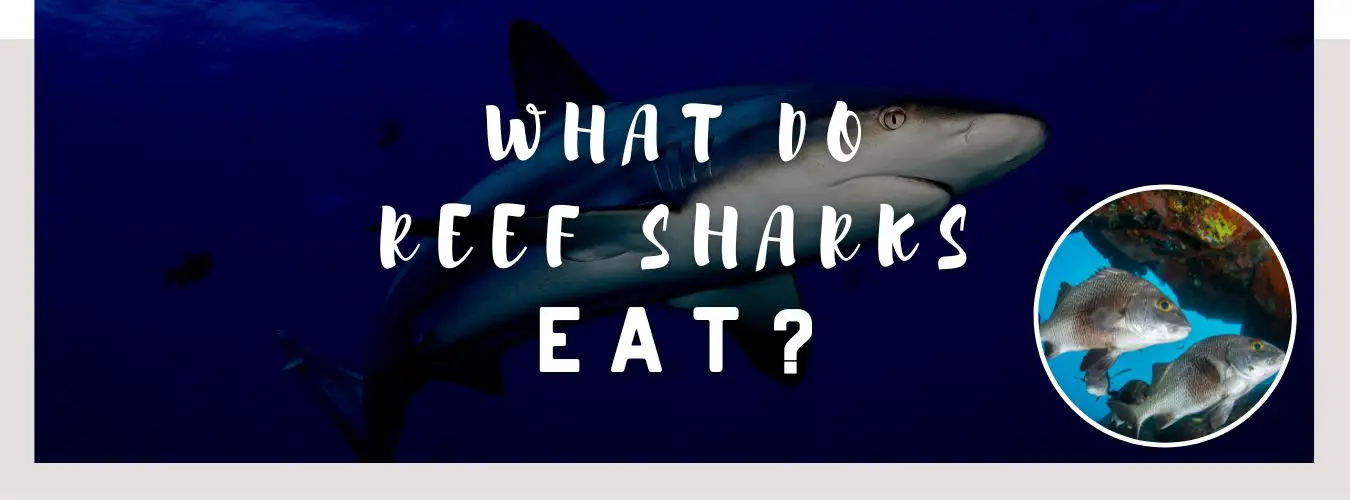
Reef sharks are a group of predatory sharks commonly found in coral reefs throughout the world’s oceans. They are at the top of the food chain and feed on various prey, including fish, squid, and crustaceans. With their sleek and agile bodies, powerful jaws, and sharp teeth, reef sharks are skilled hunters known for their aggression and high energy levels. Despite their importance to marine ecosystems, many reef sharks are threatened by human activities, such as overfishing and pollution, which can reduce their food sources and cause population declines.
What Do Reef Sharks Eat?
Reef sharks are opportunistic feeders, meaning they feed on whatever food is available. Their diets can vary depending on their location and the time of year. Some of reef sharks’ most common prey species include fish such as snapper and grunts, squid and octopuses, crustaceans like shrimp and crabs, and even lobster and sea urchins. Reef sharks are skilled hunters, using their keen senses of smell and hearing to locate food and their jaws and sharp teeth to seize and tear it. This diversity in their diets helps them play a role in maintaining the balance of marine ecosystems by controlling populations and preventing any species from becoming too dominant.
You might also like: Do Sharks Eat Seals?
How Reef Sharks Hunt Their Prey

Reef sharks use their superior senses and physical abilities to hunt their prey. They have excellent eyesight, which allows them to spot potential targets from a distance, and a keen sense of smell to track the scent of injured or dead animals. Once a reef shark has located its prey, it uses its powerful swim muscles to chase it down. Reef sharks are also known for their agility and maneuverability, which they use to avoid obstacles and navigate through tight spaces in pursuit of food. Their hunting strategy can vary depending on the shark species and the prey type. Still, one thing is sure – reef sharks are efficient predators that have mastered the art of hunting in the challenging environment of the reef.
The Importance of Reef Sharks in Maintaining Marine Ecosystems
Reef sharks play a role in maintaining the health and balance of marine ecosystems. They serve as top predators, controlling populations of other species and preventing one species from becoming too dominant. This helps to maintain the diversity and resilience of the reef, which is home to a wide variety of plant and animal species. Reef sharks also play a crucial role in nutrient cycling, consuming dead or decaying organisms and distributing nutrients throughout the ecosystem through their waste. Additionally, their hunting behavior can shape the behavior and distribution of other species, helping to create a dynamic and healthy reef community. Without reef sharks, the delicate balance of the reef could be disrupted, leading to declines in biodiversity and reductions in the ecosystem’s overall health.
You might also like: How Often Do Great White Sharks Eat?
Reef Sharks and Human Interactions

Human interactions with reef sharks have had a significant impact on their populations and the health of the marine ecosystems they inhabit. Overfishing, accidental bycatch, and habitat destruction are all significant threats to reef shark populations. Additionally, the shark fin trade, driven by the demand for shark fins in traditional Asian cuisine, has led to the decline of many reef shark species. However, human interactions with reef sharks are not all negative. Ecotourism and dive operations allow people to observe reef sharks in their natural habitats, can generate income for local communities, and create an economic incentive for conservation.
Conclusion
In conclusion, reef sharks are fascinating and vital creatures that play a crucial role in maintaining the balance of marine ecosystems. With their impressive hunting abilities and role as top predators, reef sharks help control populations, distribute nutrients, and create a dynamic and healthy reef community. Despite the threats posed by human activities, such as overfishing and habitat destruction, there is hope for the future of reef sharks. By promoting sustainable practices and supporting conservation efforts, we can help protect these magnificent creatures and ensure they continue to play their vital role in the world’s oceans for generations to come.










